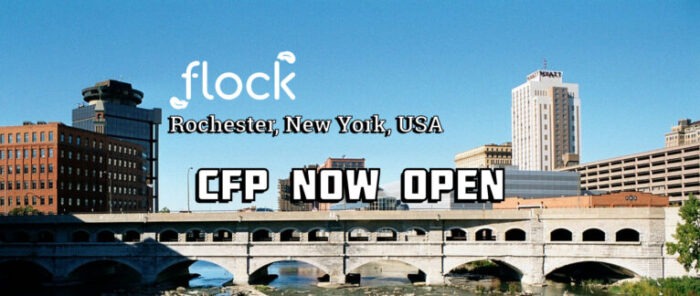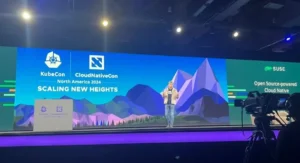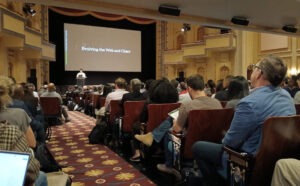Would you like to give a talk at this year’s Flock to Fedora which will happen in early August in Rochester, New York? Submissions are being accepted between now and late April — and we’ll tell you how to apply.

Are you a Fedora user? Have you always wanted to be a speaker at a Fedora event? More importantly, do you have some knowledge to pass on that would be beneficial to the Fedora community? If so, Fedora might be knocking at your door right now this minute.
The folks at Fedora on Tuesday announced the Call for Proposals for Flock to Fedora 2024, this year’s version of the distro’s annual contributor-focused conference. Submissions will be accepted between now and April 21.
Those who’ll be reviewing the proposals say they’ll be using this year’s three tracks, as well as the themes they added this year as optional descriptions for proposals, to help them “select diverse programming for the conference schedule.” They also say that interactive sessions that include attendee participation will receive extra preference over traditional lecture-style talks.
Flock 2024 Tracks
The three tracks for this years event are:
- Main Track: The usual main track of Flock. Everything and anything to do with the Fedora contributor community. Presentations, talks, workshops, and more.
- CentOS and Friends: A dedicated track for the CentOS community and other downstream friends. This focuses more to an Enterprise Linux audience, including topics about EPEL.
- Fedora Mentor Summit:(Saturday, August 10th) Half-day event focused on mentoring best practices. Mentor Summit programming focuses on workshops and sessions to promote mentorship best practices and to connect mentors and mentees across the Fedora community.
The Flock review committee this year added themes for submitters to select, which are tied into focus areas for the Fedora Strategy 2028, which was co-created with Fedora’s community on Fedora Discussion. Submitters are asked to associate their proposal with one or more of the themes to help reviewers understand how the proposed session fits into the broader conference topics. However, they say that you shouldnt be discouraged if you do not see your work perfectly fitting one of the themes.
- Accessibility (a11y): Fedora websites and docs use the current best-practices for a11y. Fedora Linux Editions use the best-available open source a11y tech. Our project tooling follows best a11y practices.
- Reaching the World: Fedora Linux is available pre-installed on more systems from more vendors. Fedora Linux is widely available in cloud providers and CI services. Fedora maintains a strong network of thriving local communities around the world.
- Community Sustainability: Everyone in Fedora can have a mentor, and everyone in Fedora can be a mentor. Modernize our communications tooling.
- Technology Innovation and Leadership: Fedora is a popular source for containers and Flatpaks. Atomic Desktops are the majority of Fedora Linux desktops in daily use. We integrate programming language stack ecosystems.
- Editions, Spins, and Interests: Each Edition has a story for each release. It’s trivial to create and maintain a new Fedora Spin or Remix. More (active) SIGs, fewer images.
- Ecosystem Connections: Better collaborative workflow with CentOS Stream. Get people working on downstreams directly involved in Fedora as an upstream. Collaborate on tooling, practices, and offerings with peer distros and upstream projects.
How to Submit
If you want to submit a proposal, go to the Flock 2024 CfP webpage, select “submit a proposal” at the bottom of the page, and fill out the form. The first reviewing round will start on Sunday, April 21st.
Flock to Fedora each year provides a venue for face-to-face meetings and conversations and is also a place to celebrate the Fedora community. This year, Flock will be held from Wednesday, August 7th to Saturday, August 10th at the Hyatt Regency Rochester in Rochester, New York.
Christine Hall has been a journalist since 1971. In 2001, she began writing a weekly consumer computer column and started covering Linux and FOSS in 2002 after making the switch to GNU/Linux. Follow her on Twitter: @BrideOfLinux




